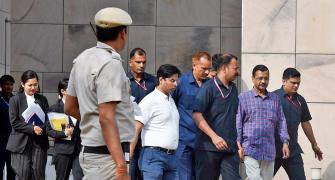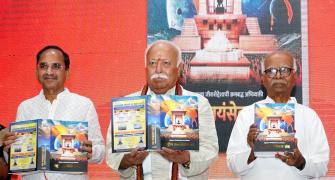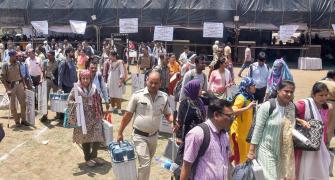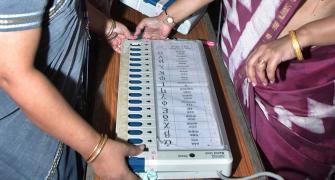Maruti Udyog Managing Director Jagdish Khattar on Wednesday said that antiquated laws, poor infrastructure and high tax regimes were preventing India from becoming a global hub for manufacturing small cars.
"Once we step out of the arena of the marketplace, and look at the realm of regulation, there is an entirely different world, marred by antiquated rules and abysmal enforcement," he said addressing an annual convention of the Society of Indian Automobile Manufacturers. Khattar is also the president of SIAM.
Lamenting the 'hopelessly dismal' and 'almost squalid' regulatory mechanism for the domestic automobile industry, he said as much as 35 per cent of what a customer pays for a car, goes as tax to the Centre and state governments and the colossal tax impedes the growth of the sector.
Total tax on a car amounts to 54 per cent on its basic price at the factory gate.
There are only seven cars per 1,000 Indians, one of the lowest car penetrations in the world with even Sri Lanka and Pakistan having 12 cars per 1,000 people. In the US and Europe, the figure stands at several hundred cars per 1,000 citizens.
"I see our dismal car penetration ratio as a tremendous opportunity even if we were to take the modest goal of reaching car penetration ratio of Sri Lanka and Pakistan," Khattar said.
The Indian small car market is the second-biggest in the world after Japan and the industry shipped 100,000 units last fiscal.
"I believe that India has the potential to emerge as the manufacturing hub for small cars in the world," Khattar said kicking off the day-long convention attended by Planning Commission Deputy Chairman Montek Singh Ahluwalia and Reliance Industries Chairman Mukesh D Ambani among others.
Taking a dig at petro retail firms, he said so rampant was the adulteration of vehicle fuel using subsidised kerosene that the assurance of pure fuel had become a differentiator.
He said SIAM has sent a proposal to government for setting up world-class facilities for automotive testing of vehicles and components which would entail an investment of Rs 1,700 crore (Rs 17 billion).
On the multiplicity of rules and agencies, he said: "We have numerous agencies working in the area of road traffic. There is no apex body...while on the one hand there is inadequate regulation and enforcement, there is also multiple regulation within the country."
Lacklustre driving licence system without credibility, rudimentary equipment to measure emission and constant haggling between police and operators of overloaded trucks reminded of inspector raj in the country, he said.
It was an irony that the Indian automobile industry crossed the one-million mark of production last year, the industry suffered from 'inadequate' regulation, Khattar said.
He said for every car despatched, 5.31 employment opportunities were created while for every commercial vehicle, there were 13.31 jobs generated and for every two-wheeler (five million units a year), almost 0.49 jobs followed.







